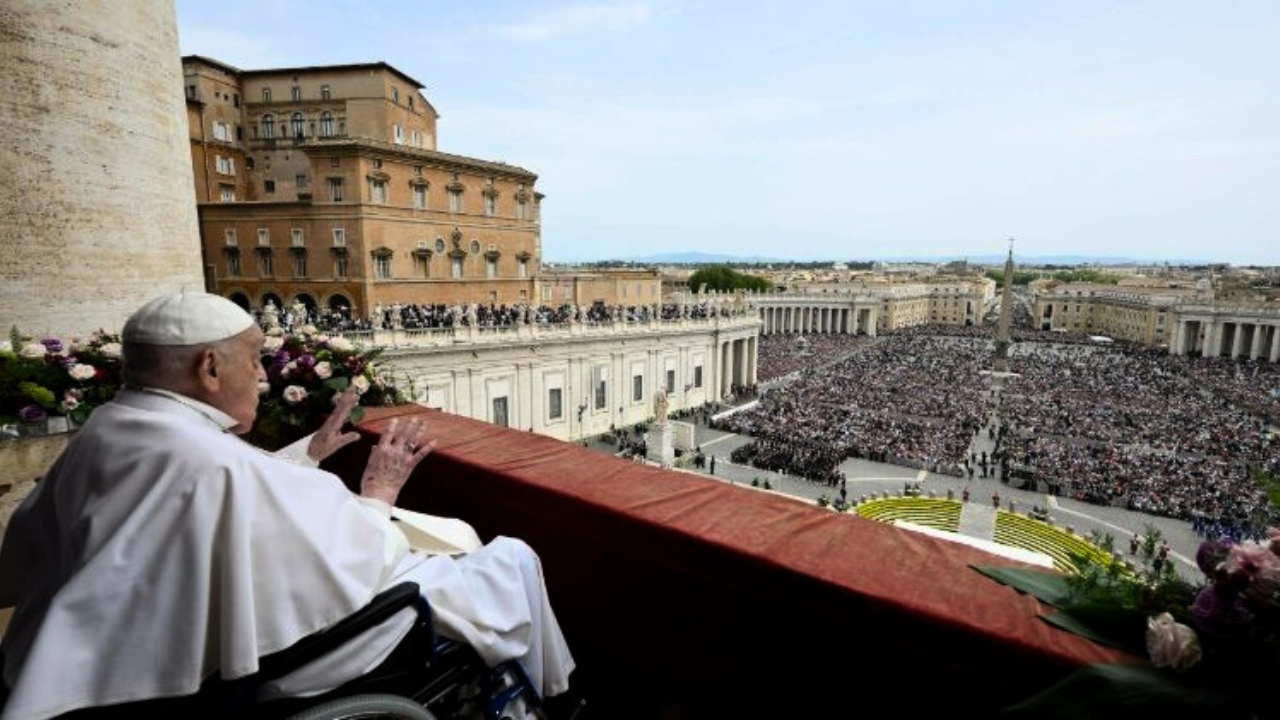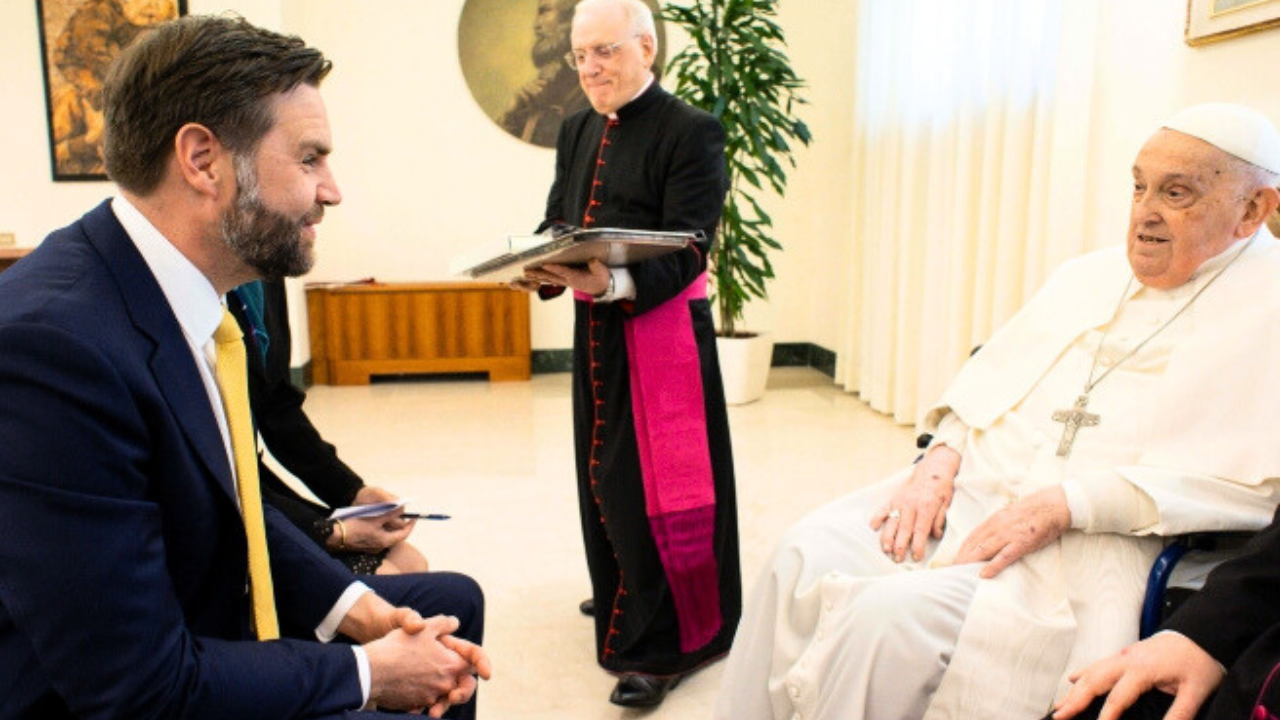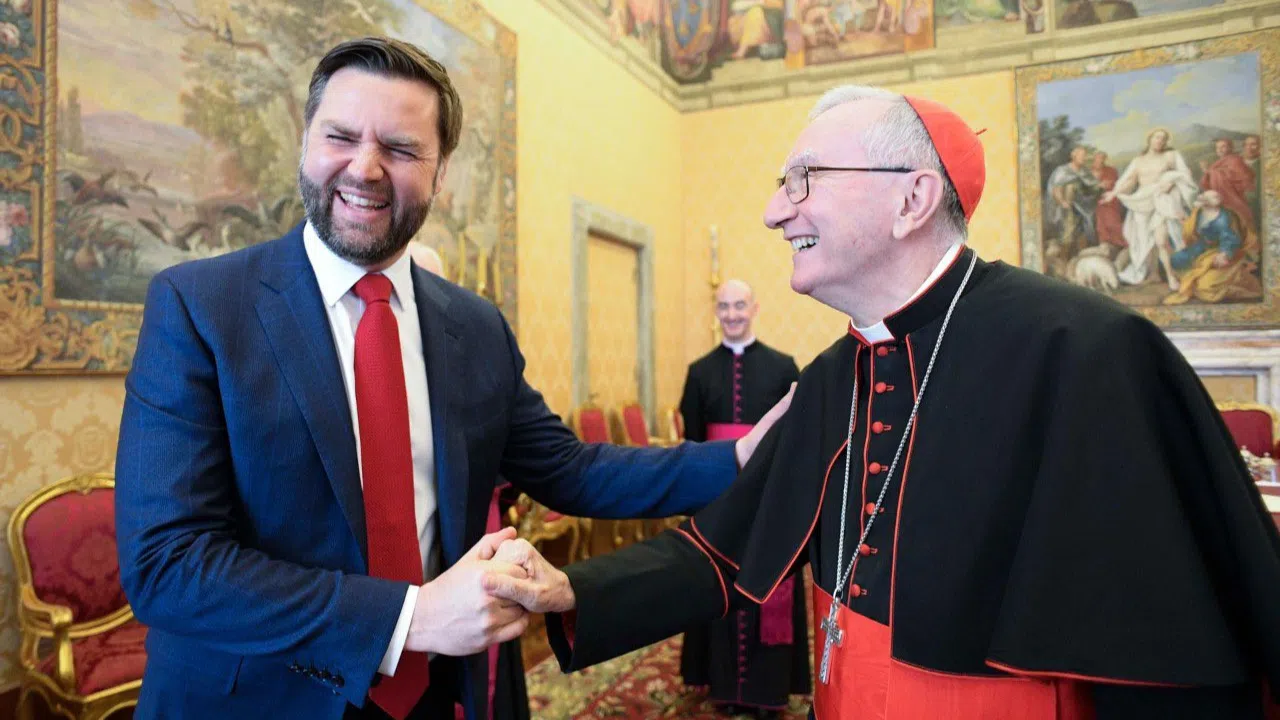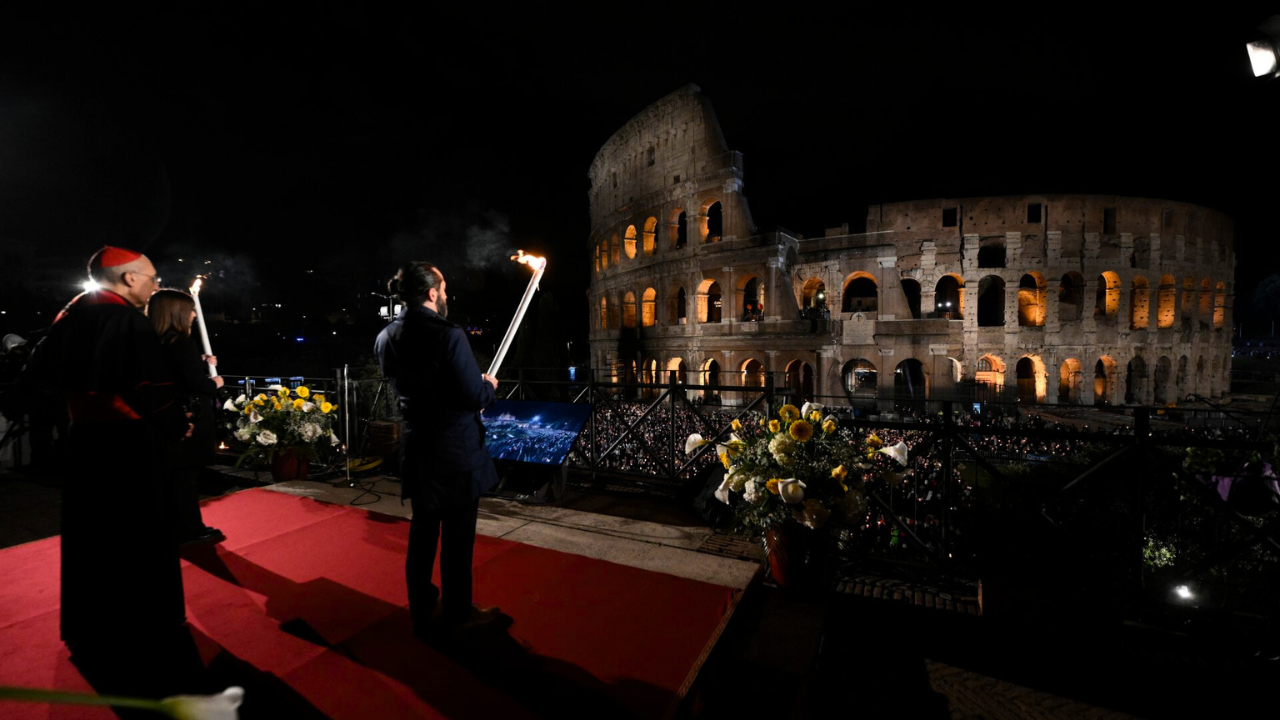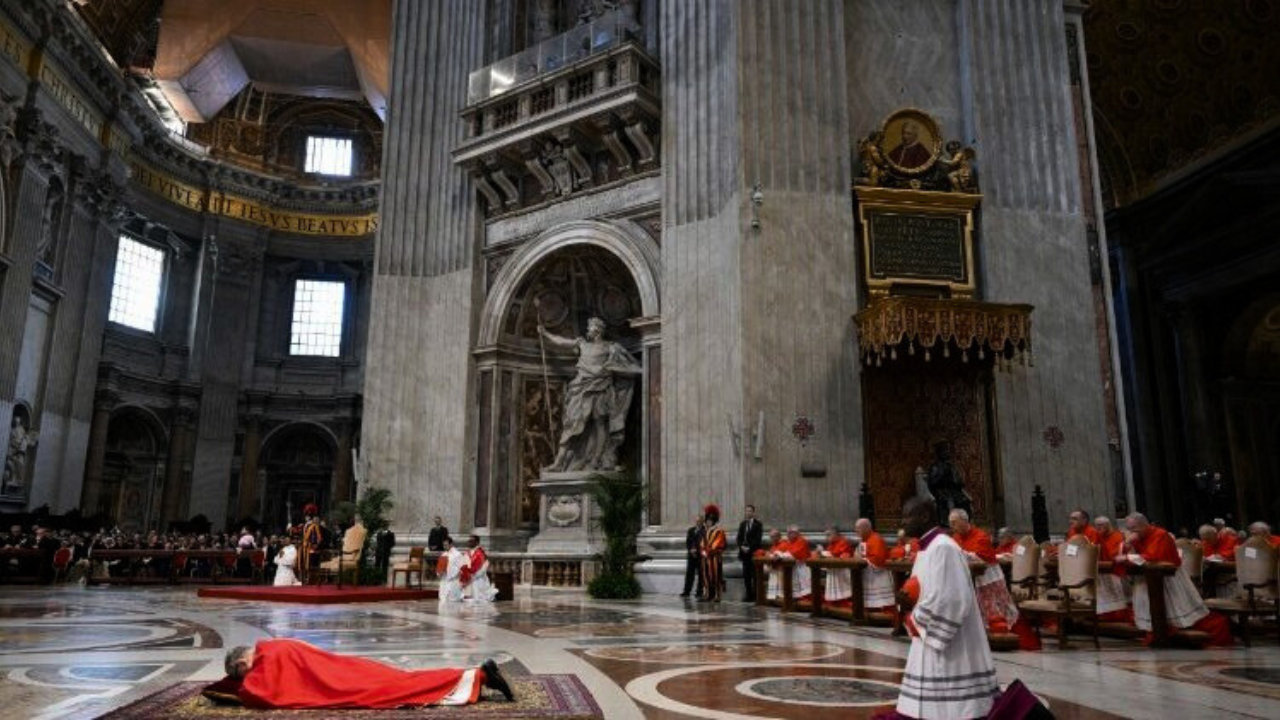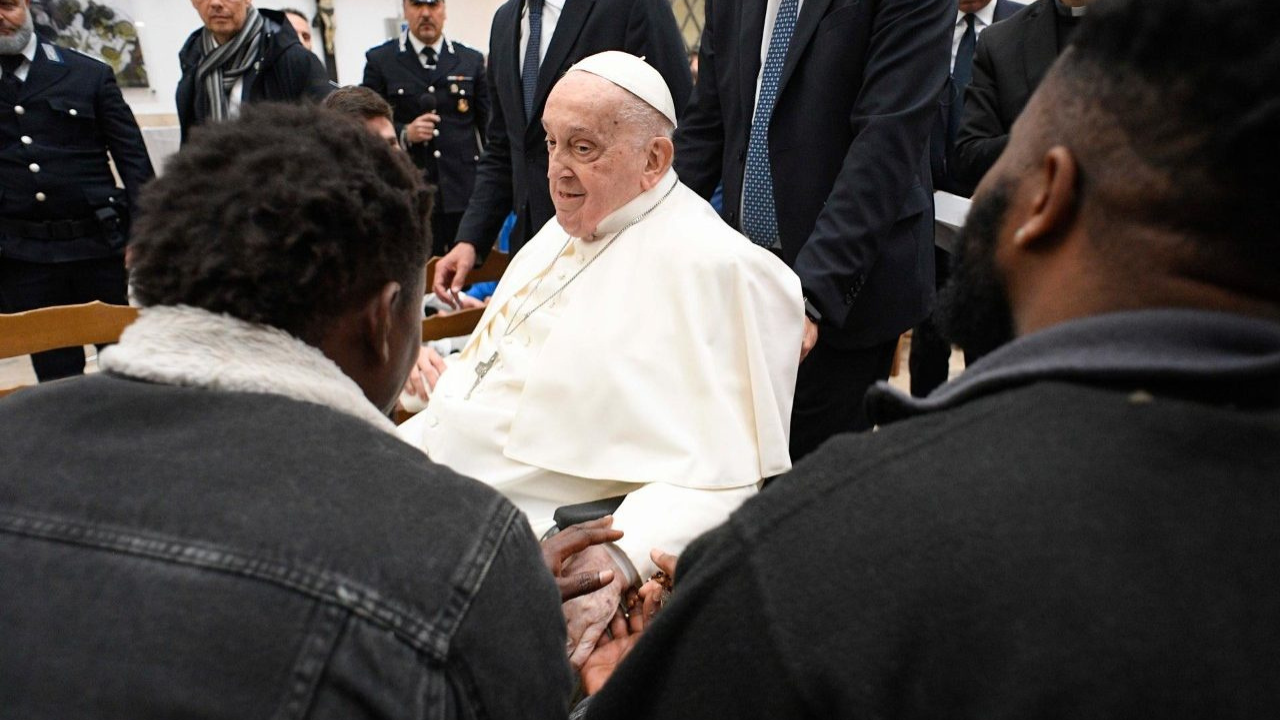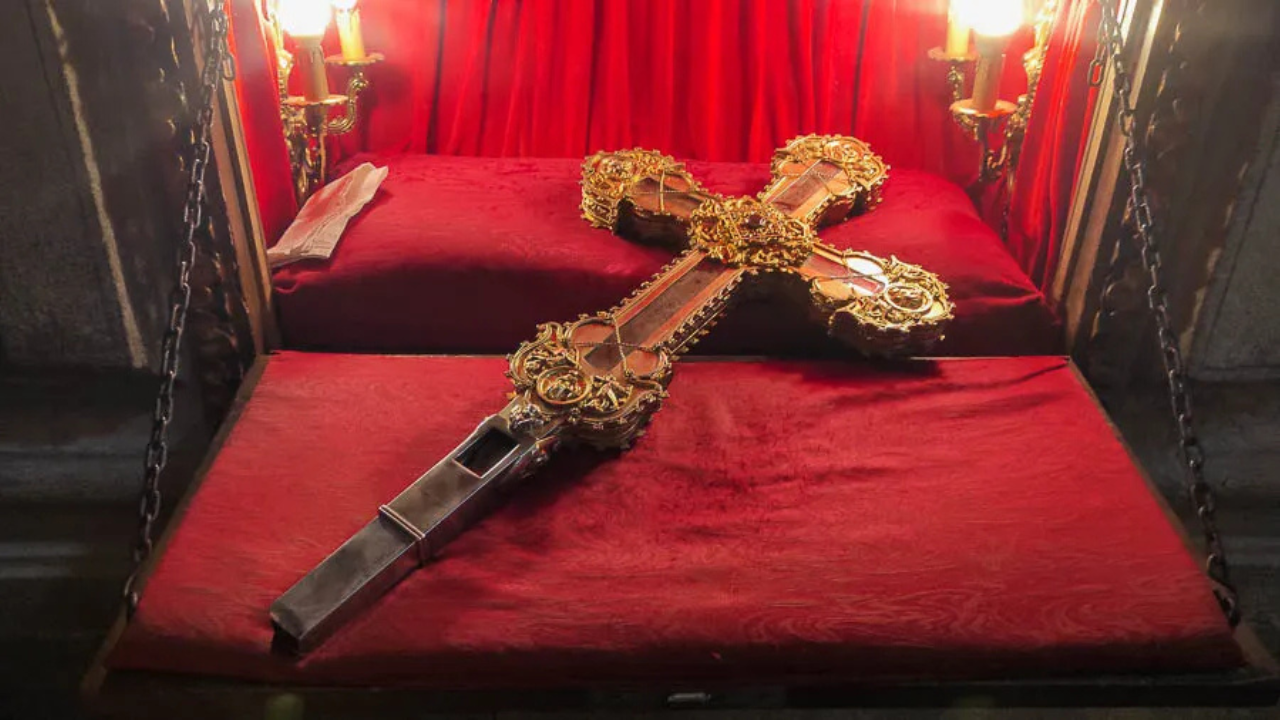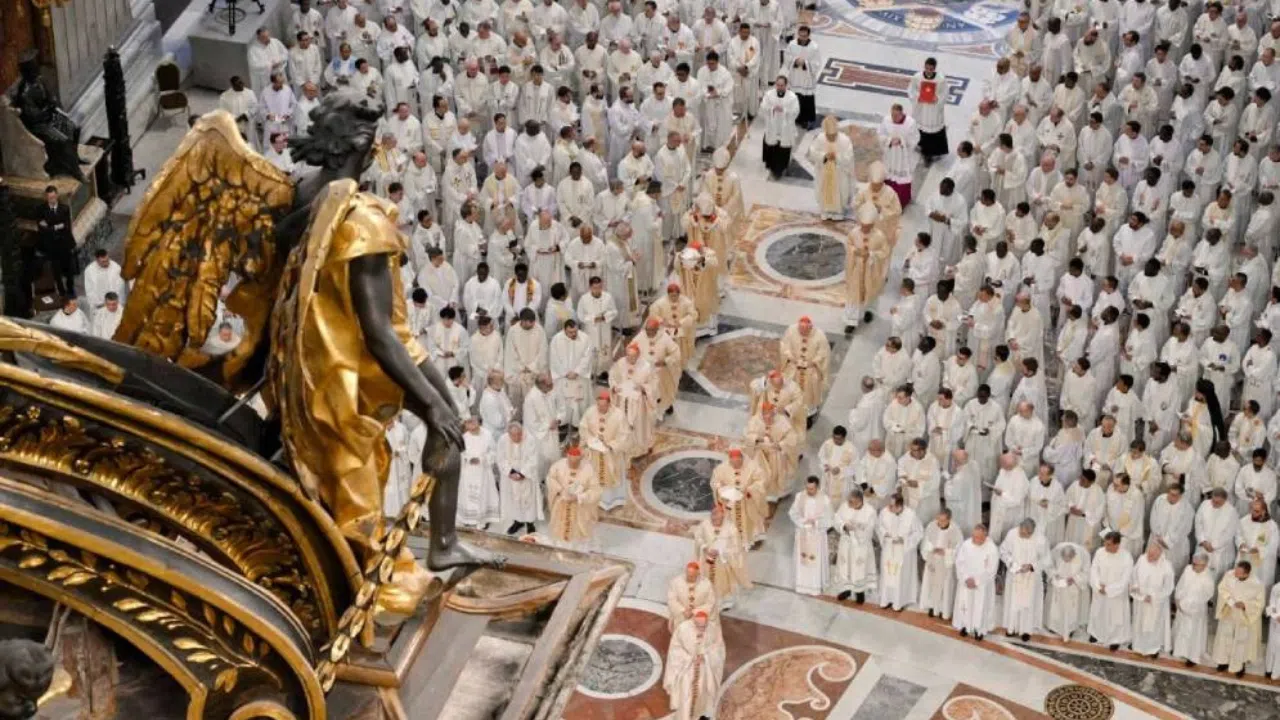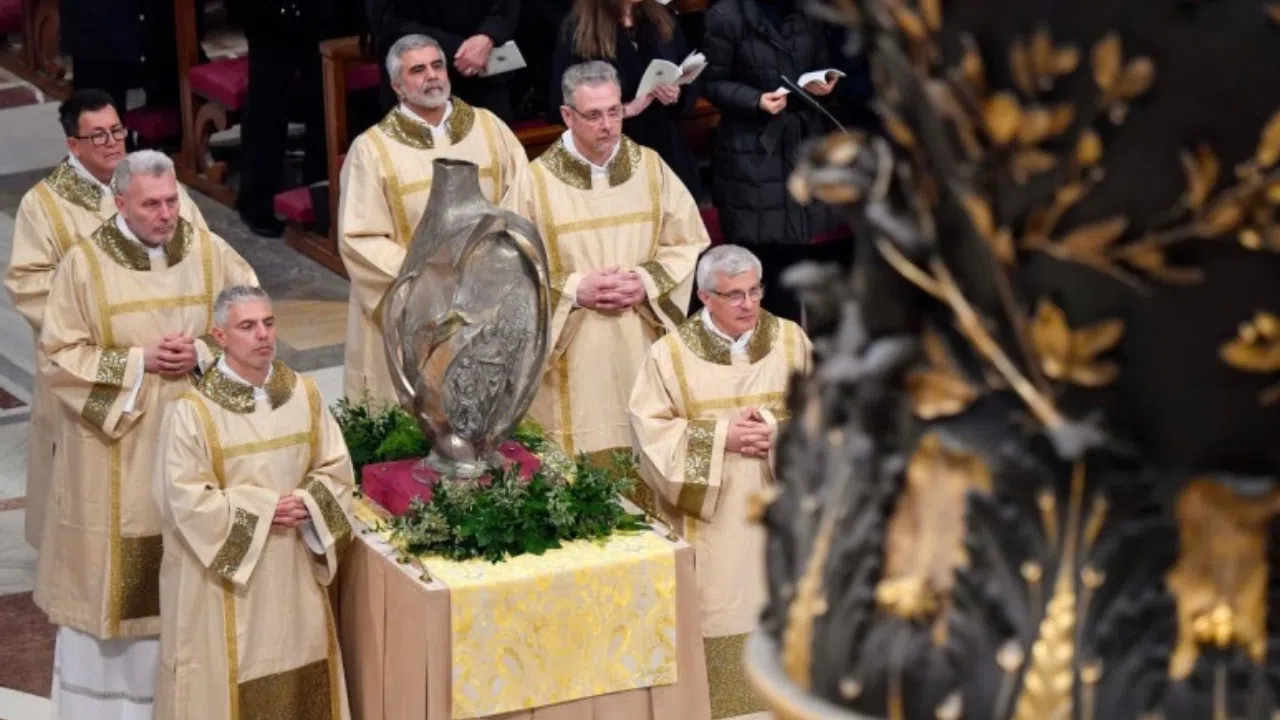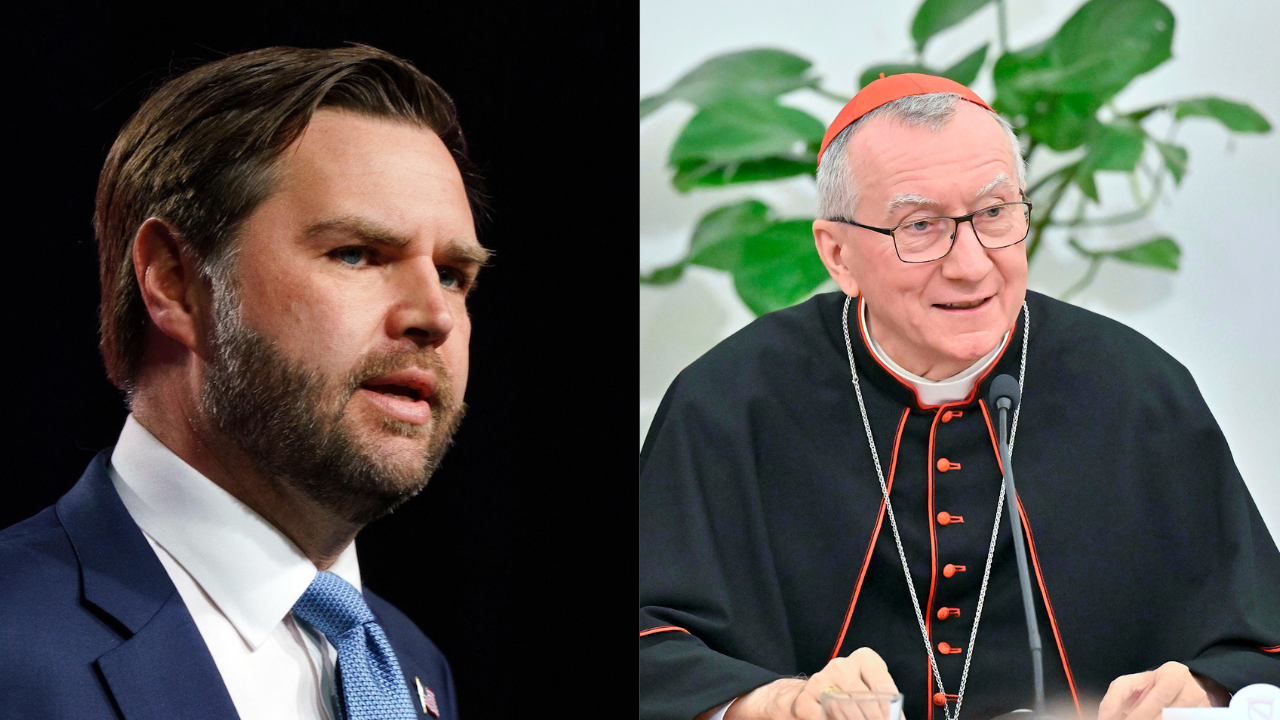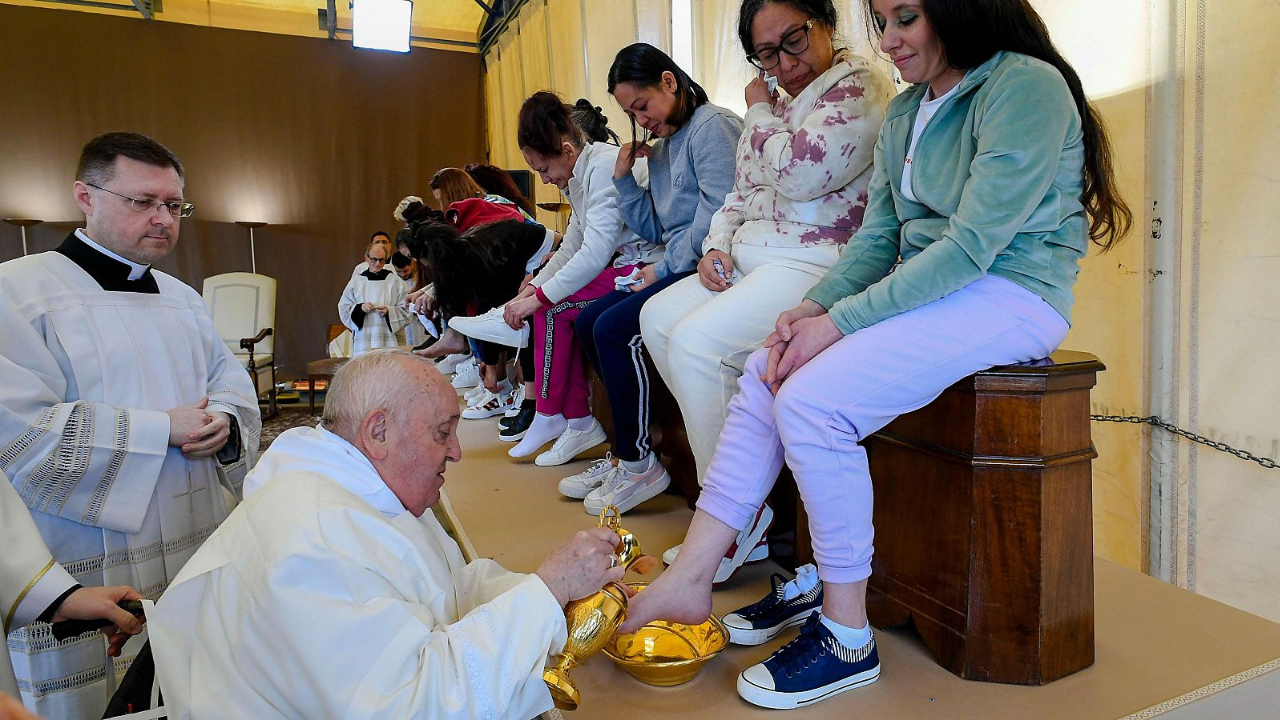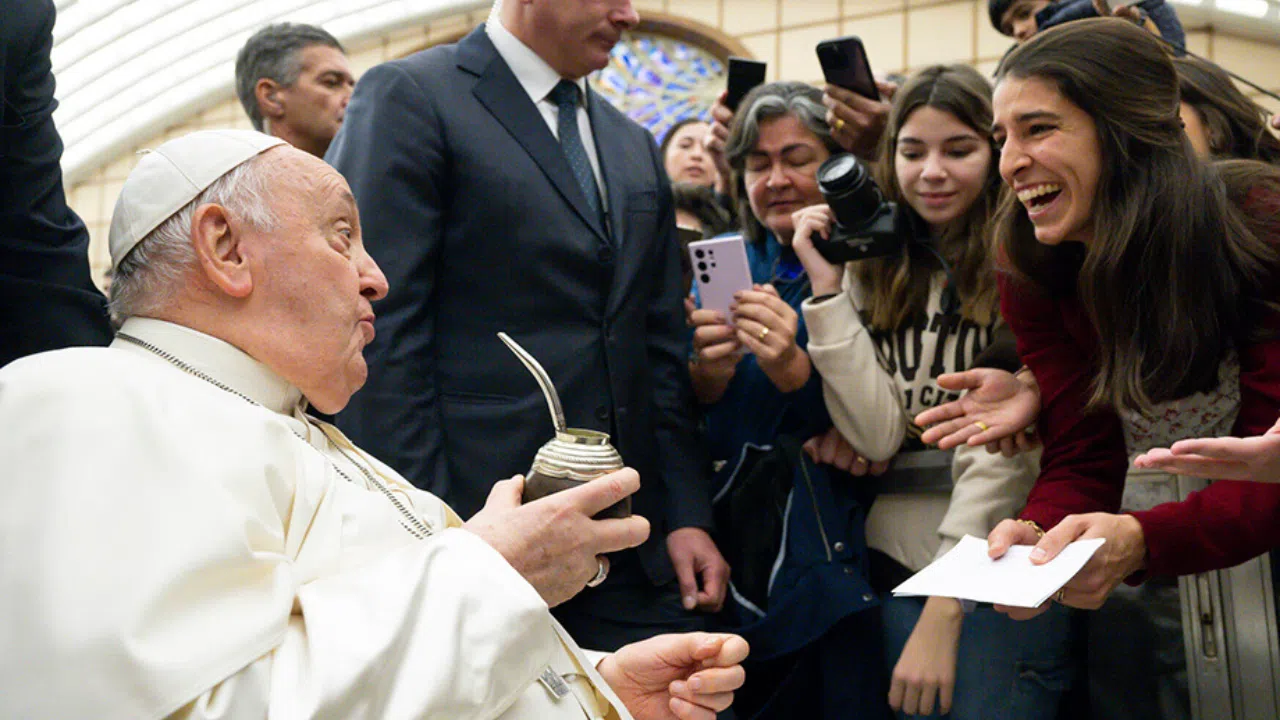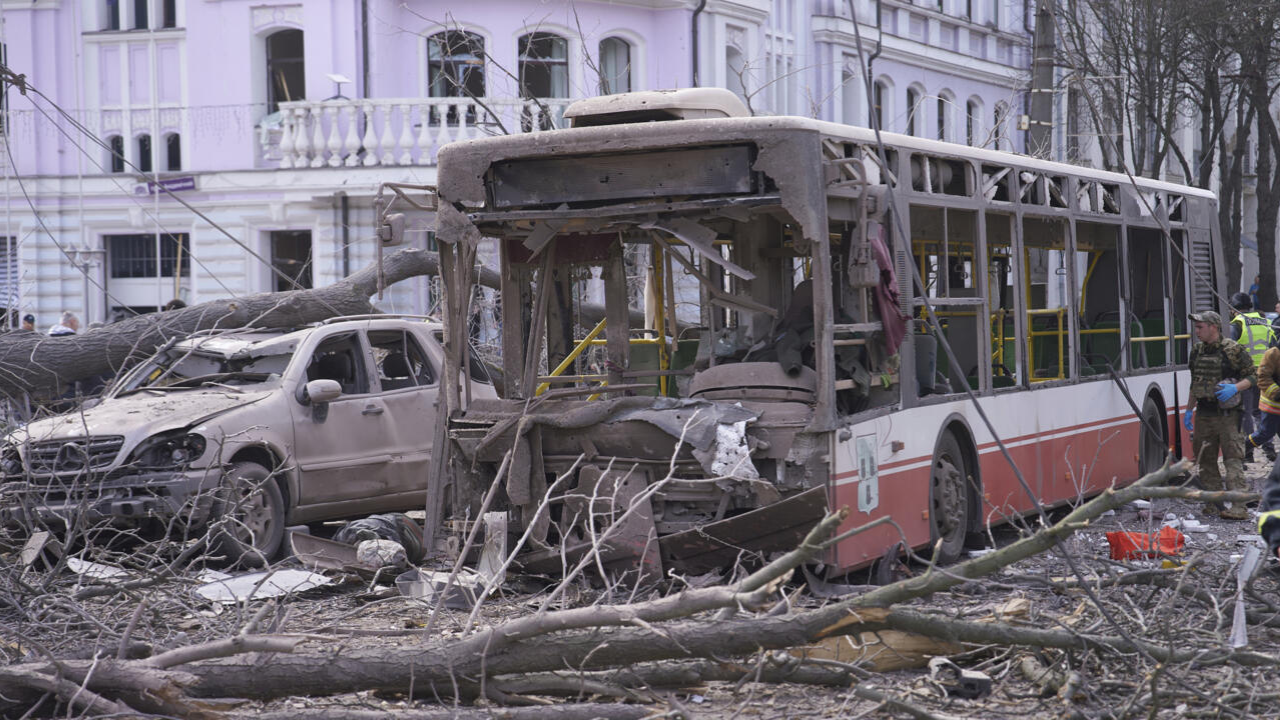Pope Francis belongs to the very small group of leaders who can make a real difference in international affairs. And from the moment he became Pope, he has never been shy on the world stage.
To commemorate the Pope's first thousands days, here are nine of his biggest moments in foreign policy.
1. VISITING LAMPEDUSA
Pope Francis, who came from a family of Italian immigrants to Argentina, made a statement with his first trip outside of Rome. He chose to go to Lampedusa, also known as the 'gateway to Europe.â?
While there, he used a phrase that would become a mainstay during his time as Pope.
POPE FRANCIS
'Who has cried for these people who lost their lives on a boat? For the young mothers who traveled with their children? For those men, who are looking for means to support their families? We are a society that has forgotten the experience of shedding tears, of suffering amid the globalization of indifference.â?
2. VIGIL FOR SYRIA
The ongoing war in Syria is one of the most gut-wrenching stories of our time. It's also one of Pope Francis' greatest concerns. A few months after becoming Pope, he organized a prayer vigil in St. Peter's Square.
One hundred thousand people came and prayed alongside the Pope. Lots of followers of other religions also came. Even early in his pontificate, it was clear that Pope Francis could bring together people in a way no other leader could.
3. HUG AT THE WAILING WALL
When Pope Francis visited the Wailing Wall in May 2014, he brought along two important friends: Rabbi Abraham Skorka and the Muslim leader Omar Abboud.
In a powerful interreligious statement, the three old friends embraced before the landmark. They said together, 'We did it!â?
4. ADDRESSING THE EUROPEAN PARLIAMENT
The Pope had some strong words for Europe's most important assembly: The European Parliament.
He highlighted the theme of dignity many times. Offenses against dignity come in many forms, he explained. The speech received a standing ovation.
POPE FRANCIS
'Dear Members of the European Parliament, the time has come to work together in building a Europe which revolves not around the economy, but around the sacredness of the human person, around inalienable values.â?
5. CUBA AND U.S. DIPLOMACY
In late 2014, Cuba and the United States announced a thaw in relations after half a century of animosity. During the announcement, both Raul Castro and Barack Obama name-checked the Pope.
In fact, Pope Francis personally reached out to both leaders in the process. He even invited both parties to the Vatican to discuss their negotiation process.
6. THE ARMENIAN 'GENOCIDEâ?
During Mass in St. Peter's Basilica, the Pope referred to the Ottoman Empire's killing of about 1.5 million Armenians between 1915 and 1923 as a 'genocide.â?
He received push-back from the Turkish government for his remarks, but the Pope stood firm and explained why he described the killings that way.
POPE FRANCIS
'Concealing or denying evil is like allowing a wound to keep bleeding without bandaging it.â?
7. LAUDATO SI'
When Pope Francis published 'Laudato Siâ? in June 2015, it attracted almost unprecedented attention for a papal encyclical. It's exactly what the Pope wanted.
His call for sweeping changes in how humans think about ecology was timed to influence the COP 21 climate conference in Paris. Since its release, the encyclical has been cited by countless heads of state. And perhaps more importantly, its message has reached millions of people: Catholic or not.
8. WINNING OVER AMERICA
Some of the toughest criticisms of Pope Francis have come from politically conservative Catholics in the United States. The Pope's trip there, the first in his life, was considered a major test of his appeal.
Polling data after the trip suggests the visit improved the Pope's standing among Americans. Moments like this, during his address to Congress, are why he was able to win over doubters.
POPE FRANCIS
'We need to avoid a common temptation nowadays: to discard whatever proves troublesome. Let us remember the Golden Rule: 'Do unto others as you would have them do unto you.'â?
9. ENTERING A WAR ZONE
It was perhaps the riskiest move of his papacy. Pope Francis decided to visit a country currently in the middle of a violent civil war.
His visit to a refugee camp in the Central African Republic was the most moving moment of the trip. It was also powerful diplomacy.
POPE FRANCIS
'We have to work and pray and do everything for peace. But peace without love, without friendship, without tolerance, without forgiveness, is not possible.â?
ATO
RR
-SV
-PR:
Up:FV
